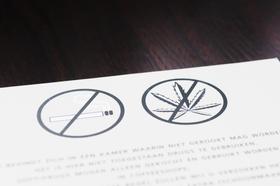Have you seen some of those lists with titles like 50 Things You Must Do Before You Graduate From College? I like the idea of lists. It keeps me focused. But honestly, some of those lists I read made me wonder what they were thinking on earth. With tuition and fees running $50,000 and more at a private college, I thought that most of the items were a total waste of time and effort. Consequently, I offer the following worthwhile things to do before you graduate from private school.
Earn strong SAT scores.
This assumes that you are attending a school that prepares you for the SAT, which is one of the standardized tests you take as part of getting admitted to college. The SAT, just like the LSAT or GMAT, tests your knowledge gained over several years. While you can certainly take a couple of practice tests to get a feel for the test and work to the clock, really, the best preparation for the SAT is your day-by-day conscientious learning. You cannot cram SAT preparation.
Offer five or more APs.
If you are in a high school that teaches Advanced Placement courses, then try your very hardest to take 5 AP courses. They are a lot of work. Some are very difficult. The upside is that colleges recognize the AP standard and may give you credit for introductory courses in the subjects you took APs in depending on your score.
Here is what the AP site has to say about scores:
What Is an AP Score and What Does It Mean?
Your AP score shows how well you did on the AP Exam. It's also a measure of your achievement in your college-level AP course. This score will be used by colleges and universities to determine if they will grant you credit for what you've already learned, or allow you to skip the equivalent course once you get to college (this is known as advanced placement).
Your score is a weighted combination of your scores on the multiple-choice section and on the free-response section. The final score is reported on a 5-point scale as follows:
5 = extremely well qualified
4 = well qualified
3 = qualified
2 = possibly qualified
1 = no recommendation
"Qualified" means that you have proven yourself capable of doing the work of an introductory-level course in a particular subject at college. Many colleges and universities grant credit and placement for scores of 3, 4 or 5; however, each college decides which scores it will accept. To see college policies for AP scores, visit our AP Credit Policy Search. Source: College Board
Earn your IB diploma.
If you are attending a high school offering the International Baccalaureate Diploma Program, do as well as you can. The coursework and the diploma requirements are stringent and require some serious academic work. But it will, like the AP, produce a result that colleges and universities around the world recognize.
Engage in community service.
College admissions staffers like to see that you have been involved in community service. It indicates that you are aware of the circumstances of others, that you are willing to help make your community a better place, and that you won't simply allow others to do what needs to be done in your community. Donating clothes to the local homeless shelter or canned goods to your local food bank are examples of acts of kindness that show that you care. Volunteering at the local hospital or tutoring after school takes more time and effort but shows a serious commitment to helping others.
Sing in a choir.
Some people assume that singing in a choir means singing in a church choir. If that is your inclination, go for it. However, what about singing in the local community chorus? Perhaps your school offers a choral program as exciting as what we all saw on Glee when it was on network TV from 2009-2015. The program showed the vibrant, expressive, yet demanding side of singing in a choir, didn't it? Besides having fun singing, this arts activity shows another side of you on a college application. It takes time and effort to participate in any activity. Admissions staff like to see that kind of commitment as it denotes a level of maturity.
Act in a play.
Perhaps the dramatic arts are your thing. Once again, memorizing lines, learning how to be in character for extended periods of time, and working as a team to produce a satisfying result shows maturity in so many ways.
Learn a new sport.
You have been a swimmer since you were an infant. You even were on the junior high swim team. What about tackling a new sport while in high school? Most private schools have really fine athletic programs. There will be a sport you can try out and perhaps even become proficient in over your time at high school.
Be a prefect or a proctor.
What do prefects and proctors do? Private schools generally have students who are leaders in the school community. The role will have different names, but essentially they are responsible for a variety of tasks as determined by the school administration. These students can be appointed or elected depending on how the school does things. Again, having a leadership role in your high school looks good on your college application.
Be a debater.
Being able to think quickly on your feet is an admirable, extremely useful attribute. It is not something you learn how to do overnight or in a week. High school forensics will teach you to listen and react to what you are hearing. Forensics is a great confidence builder. It pulls together experiences, ideas, and skills from every aspect of your character. This activity will open many doors in later life.
Create a work of art.
I saved this one for last simply because I feel it is so important to learn to express yourself artistically and to learn what is good art and bad art. As you become successful in your chosen career, you will have the opportunity to appreciate and acquire art in all its forms. Best of all, most artistic activities, such as drawing or painting, are relaxing and enjoyable.
Questions? Contact us on Facebook. @privateschoolreview























